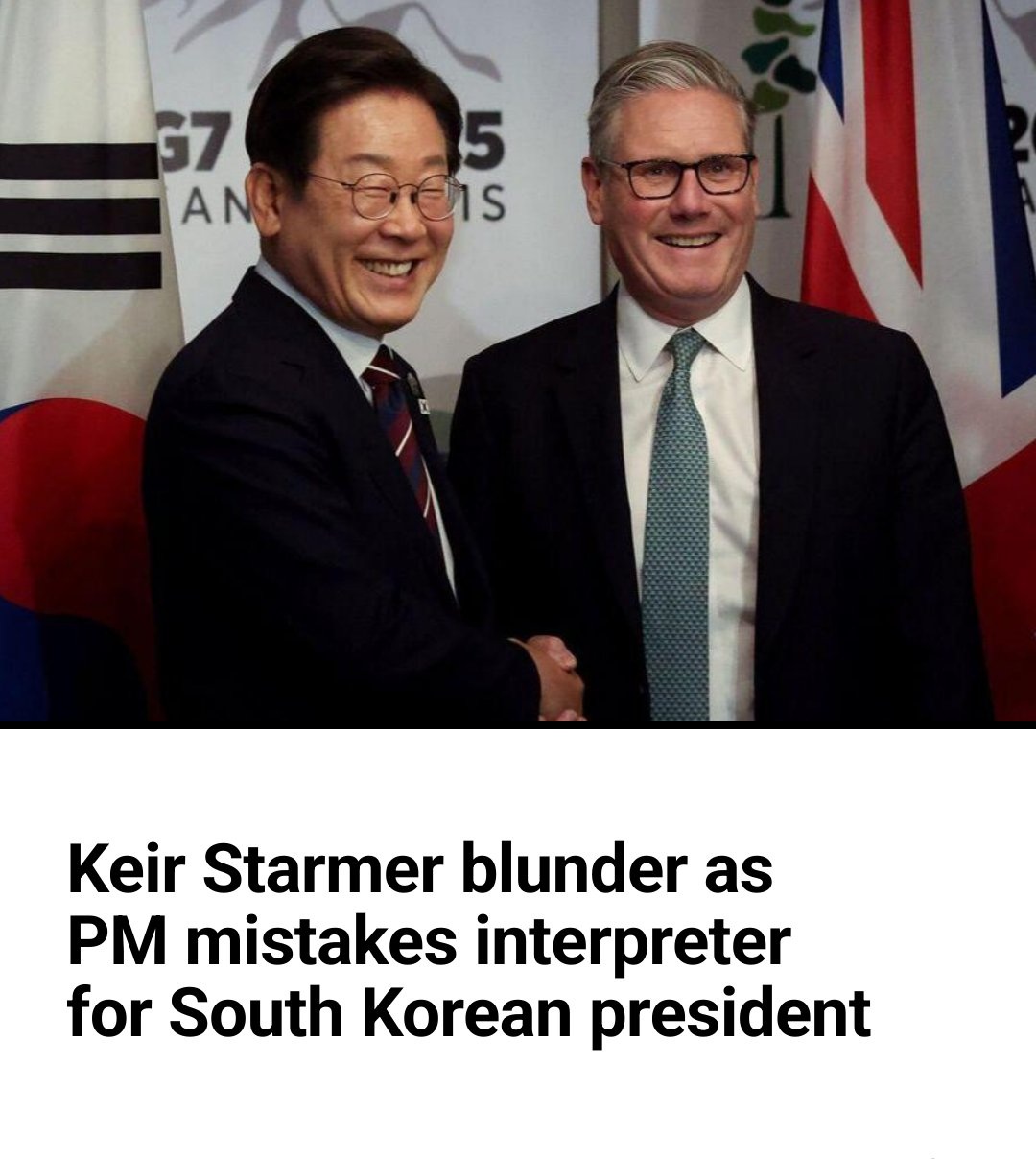Sir Keir Starmer has made a major gaffe by appearing to mistake an interpreter for South Korea’s president Lee Jae-myung at the G7. There was further confusion about where the two leaders should stand before posing for a photograph at the gathering in Canada.
The Prime Minister met Mr Lee on the fringes of the summit in Kananaskis, where the pair agreed to complete an upgrade to a free trade agreement between London and Seoul. It came after Sir Keir saved the day when US President Donald Trump dropped the pages of a UK-US trade deal as they spoke to reporters at the G7 summit.

Keir Starmer meets with South Korean President Lee Jae-myung. (Image: Getty)
Mr Trump also said his administration had reached an agreement with the European Union when he meant the United Kingdom.
Sir Keir described relations between South Korea and the UK as “good” and “strong”, but noted he wanted to strengthen ties further on trade, defence and security.
Meanwhile, the PM played down the prospect of a US intervention in the ongoing conflict between Israel and Iran. Mr Trump abruptly left Sir Keir and G7 allies at the summit to deal with what he called “big stuff”.
Asked if the US could intervene as the conflict threatens to spiral into all-out war, Sir Keir told reporters, “There is nothing the president said that suggests he’s about to get involved in this conflict. On the contrary, the G7 statement was about de-escalation.”
In a statement on Monday (June 16) before Mr Trump’s abrupt departure, G7 leaders had reiterated their “commitment to peace and stability” but stopped short of calling for a truce between the two foes.
When asked whether he was disappointed in the apparent US move to act unilaterally regarding the conflict amid concerns the G7 could be sidelined, Sir Keir played down divisions.
He told reporters: “I think what (the president) said was he wanted to go beyond a ceasefire effectively and end the conflict. And I think he’s right about that. I mean, a ceasefire is always a means to an end.”
A usual joint communique from the summit was not expected as leaders struggled to find unity on issues including Ukraine, with Mr Trump indicating his reluctance to impose sanctions on Russia.
Instead, host prime minister Mark Carney of Canada issued a “chair’s summary” insisting the group “continues to demonstrate its value as a platform for advanced economies to… address issues of peace and security”.
